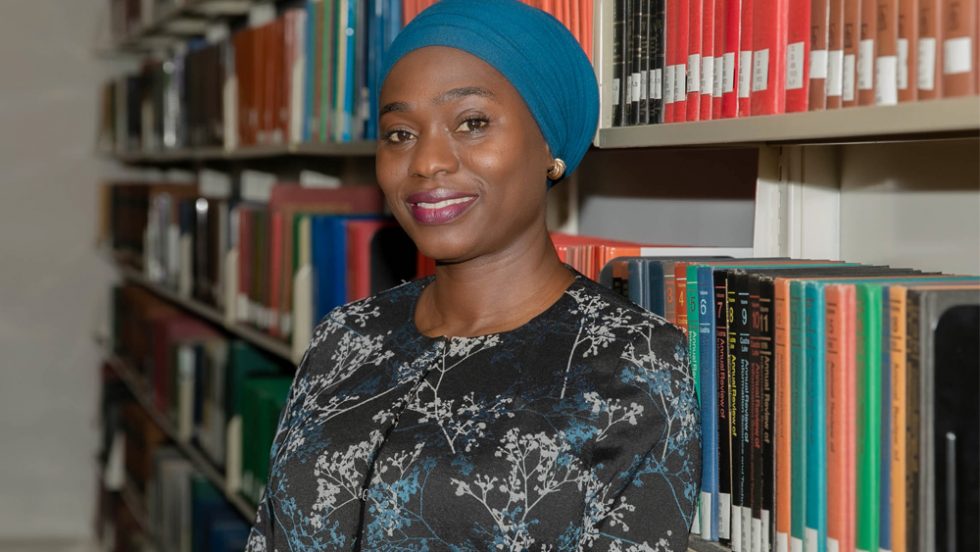
From Africa to North and South America, Assistant Professor Korede Yusuf, PhD, is working with vulnerable populations and taking her students with her.
Korede Yusuf, PhD, began her professional career as a physician in her home country of Nigeria, committed to the treatment of pregnant women and their children. Dismayed by the preventable deaths she witnessed almost daily, she eventually concluded that the best way to help improve health among vulnerable populations would be to go into public health research and teaching.
Now, after earning a master’s degree in public health and a PhD in epidemiology at American universities, she’s an assistant professor at Adelphi’s College of Nursing and Public Health, conducting studies that may lead to changes in the care provided women and children in low-income groups and underserved communities. She actively involves Adelphi students in her research, inspiring them to enter the field.
In just the past two years, Dr. Yusuf has published articles about health insurance and access to skilled birth attendance in Togo, trends in reproductive health in Nigeria, and effects of folic acid dosage strengths on fetal body and brain size among high-risk pregnant women who smoked cigarettes during pregnancy. Thanks to a faculty development grant, she’ll be studying approaches to mitigating the risk of intimate partner violence in Nigeria.
Concurrently, Dr. Yusuf teaches graduate courses in epidemiology and quantitative analysis, enhancing her classes with real-life examples and hands-on experiences.
In 2018, Dr. Yusuf took about a dozen students to Guatemala, where lower respiratory infections are a leading cause of death among low-income indigenous Guatemalans, partly due to inhaling smoke from cooking fires, which are often located very close to their living areas. A solution is to install simple wood-burning stoves in homes, something the Adelphi group did during their trip.
Students also provided lunch to the elderly and visited a recycling plant to explore ways to help residents reduce water pollution. They donated educational and medical supplies. They also became aware of the cultural differences between indigenous Mayans and ladinos—nonindigenous Guatemalans—and the socioeconomic disparities that lead to unequal access to education and healthcare.
“We have a very diverse Master of Public Health program at Adelphi, with many international studies,” Dr. Yusuf said. “We encourage a global perspective that extends beyond the classroom and inspires future work that could help solve some of these pressing world issues.”